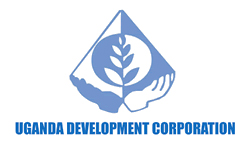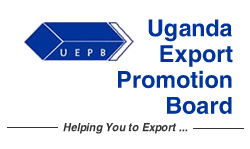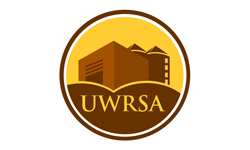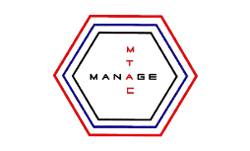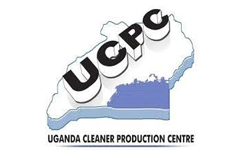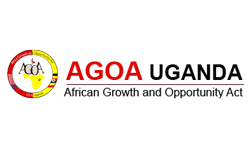Uganda National Bureau of Standards
Website: http://www.unbs.go.ug
Background:
The Uganda National Bureau of Standards (UNBS), was established as a semi-autonomous body by an Act of Parliament in 1983. It has a National Standards Council (NSC) as its policy making body. The Executive Director together with the management team is charged with the administrative and operational responsibilities. The current staff strength of UNBS is one hundred and six (106) people, of whom approximately 75% are technical staff of the organization.
UNBS Mandate, Vision and Mission
- Mandate: The UNBS mandate is provided through the Act of Parliament that established it and is given as: develop and promote standardisation; quality assurance; laboratory testing; and metrology to enhance the competitiveness of local industry, to strengthen Uganda’s economy and promote quality, safety and fair trade.
- Vision and Mission: The vision of UNBS is to be a leading institution of international repute in the provision of standardisation services. UNBS’ mission is to enhance national development through the application of standards in trade, industry to encourage fair competition and protect consumers.
The Role of UNBS
The role of UNBS can be classified in terms of both Government’s priority programmes and international relations:
UNBS and Governments’ priority economic development programmes UNBS’ role and importance in the economic development of Uganda has continued to grow and the expectations from the public are also continuously increasing. The role of UNBS is increasingly becoming more and more relevant especially in the provision of technical expertise in mainstreaming quality standards in the government’s economic programmes such as Poverty Eradication Action Plan (PEAP), Plan for Modernisation of Agriculture (PMA), Medium Term Competitive Strategy (MTCS) and Strategic Exports Programme (SEP).
It is generally recognized that the export markets can only be obtained and sustained when our locally produced products are internationally competitive not only in prices but also in quality. Uganda therefore requires a strong national standards infrastructure capable of among other things:
- Spearheading development and implementation of standards for the various sectors of the economy.
- Carrying out conformity assessment of products and services based on quality and standards requirements.
- Protecting the consumers against substandard, shoddy and hazardous products.
- Ensuring delivery of quality services to the people and;
- Facilitating the growth of strong private sector competitiveness on sustainable basis.
UNBS in international relations:
UNBS is the National Enquiry Point on World Trade Organisation (WTO) agreements on Technical Barriers to Trade (TBT) and sanitary and Phyto-sanitary Measures (SPS) as well as the National Codex contact point. UNBS is also a member of the International Standardisation Organisation (ISO)
At the regional level, UNBS is actively involved in the development and elaboration of regional standards at the East African Community (EAC) and Common Market for Eastern and Southern Africa (COMESA). The harmonised standards and codes of practice are geared at facilitating trade within the region.
Functions of UNBS
The UNBS services to the public are both regulatory and supportive to trade in nature. They are regulatory in as far as ensuring of fairness in trade and protection of the consumers against substandard, shoddy, and hazardous products is concerned; and are supportive to trade through the development and implementation of standards for the various sectors of the economy and carrying out conformity assessments of products to standards. These activities ensure that manufacturers produce quality products that are competitive both locally and internationally.
- UNBS as a Trade Support Institution UNBS support trade through the provision of the following services:
- Promotion of Exports: UNBS assists exporters by:
- Providing information on standards and quality requirements of the export markets
- Conformity assessment of the export products through laboratory testing and inspection. Certificates of analysis and/or certificates of conformity are issued whenever required by the export markets.
- Providing training and technical advisory services to (both existing and potential) export-oriented industries and businesses on standardisation and quality assurance to enable them improve on the quality of the exports.
- Assisting in export-oriented industries and businesses in establishing Quality Management Systems (e.g., ISO 9000) in their processes to improve their capability of producing products that conform to the export market standards and quality requirements
- Ensuring quality imports:
UNBS through implementation of the Import Inspection and Clearance Regulations 2002 carries out inspection of imports to:
-
- Safeguard the health and safety of the consumers and the environment against imported substandard, shoddy and hazardous products.
- Safeguard our industries from cheap counterfeit imports that can be a threat to our infant industries.
- Ensure that Uganda’s hard-earned foreign exchange is not wasted on shoddy, substandard and sometimes dangerous products, which may not only further impoverish the people but also cause ill health sometimes resulting in death.
- Similarly, UNBS facilitates import trade by providing importers with information on requirements of Uganda Standards for onward transmission to potential suppliers abroad.
- Ensuring fairness in domestic trade: UNBS is the custodian of the physical internationally traceable measurement standards such as the standard kilogram, standard metre length etc. UNBS does this through ensuring precision and reliable measurement systems by:
- Verifying the accuracy of weighing and measuring instruments used by traders and consumers in commercial transactions,
- Calibrating measuring and testing equipment used in industry to ensure accurate measures of products made by these industries
- Assisting the private sector, procurement agents, tenders, government and the general public in assessing conformity of purchases to specifications through testing, measuring and inspection of the consignments before delivery.
UNBS as a Regulatory Institution: The regulatory function of the UNBS is carried in the following ways: · Carrying out market surveillance to rid the market of dangerous, shoddy and substandard and counterfeit products. · Providing information and technical advisory services to industries to enable them meet quality and standards requirements. · Providing technical assistance to industries so as to improve on the quality and safety of their products and services. Carrying out quality audits and inspection with the aim of quality marking or certifying products that conform to Uganda Standards or other specifications.

